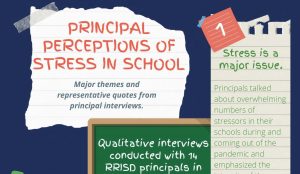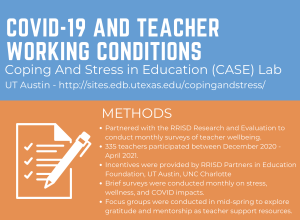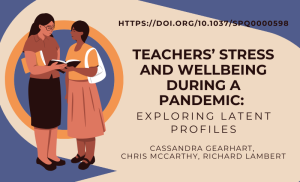Current Work
Educator Stress and Wellness
This line of research focuses on understanding the stress that teachers and administrators experience and how to help them cope and thrive. We use both local and national samples of teacher’s and administrators to understand how stress impacts their occupational health and overall well-being. This line of research includes several projects:
Principal leadership, coping, and wellness: Principals have an important role in the U.S. as campus leaders and the primary brokers of school resources. Our research examines both the sources of stress that administrators experience and how they seek to improve the occupational health of their teachers.

Understanding Teacher Stress with the Classroom Appraisal of Resources and Demands (CARD): We developed the CARD to better understand how each teacher appraises both demands and resources in their classrooms.
Teacher Stress: Race, Culture, and Sexual Identity: The identity of teachers and their students plays an important role in the educational enterprise, and we examine how identity and well-being intersect in school settings.
Psychological and Physiological Aspects of Teacher Stress: This research is part of a multi-disciplinary team of investigators to examine closely the relationship between teacher scores from widely used self-report measures, our CARD instrument, and physiological stress response.
Understanding Teacher Stress with national workforce surveys: We use the CARD protocol with existing surveys to understand teacher stress at a local and national level. For many of our studies, we use a mixed methods approach, including both quantitative and qualitative data.
Group Training and Intervention
Group interventions can be an effective way to help teachers identify and reduce the stress they experience in their work. Dr. McCarthy also conducts research on group training and processes.
Preventive Coping
Much of our work in this area includes the Preventive Resources Inventory, a measure of psychological assets that individuals can use to proactively cope with stress, particuarly in the context of careers.


